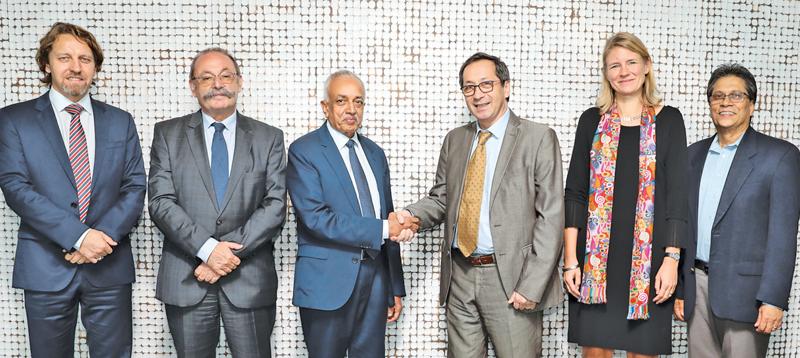
Many people think that the Government is not progressing fast enough, but making reform happen in Government is not easy. For over a decade, between 2005 and 2015 there was a regime that prioritised discretion over systems, and patronage over transparency, it takes a while to roll that back and bring in better systems, Minister of Development Strategies and International Trade, Malik Samarawickrema told the EU Dialogue in Colombo recently.
It was held under the co-leadership of Minister Samarawickrema and the EU Ambassador Tung-Lai Margue.
Excerpts of the Minister’s speech:
“This joint effort between the EU Delegation in Sri Lanka and the Ministry was started in January 2017 to improve the regulatory and business environment in the country to increase trade and investment between the EU and Sri Lanka.
“Many people in the private sector talk about the ‘Doing Business Index’ a lot. Of course, improving that is important, and that is why we have eight task forces working on eight aspects, and some of those reforms were recognised this year – lifting our rank by 11 places.
“However, it is not only the ‘Doing Business Index’ that we are focussed on. Not all business climate constraints are neatly codified in an annual report. We recognise that such constraints arise from time to time and are varied in nature.
“We must have mechanisms to resolve them as they come up. While we work on the improvements to the ‘Doing Business Index’, we have mechanisms such as this EU Dialogue, as well as others such as the Exporters Forum, to resolve investors’ issues. We consider these platforms as important.
“I know that sometimes many of you may feel that we aren’t progressing fast enough, but understand that making reforms in Government is not easy. We have to keep pushing forward, and change how things are run in the public sector. When for over a decade, between 2005 and 2015 we had a regime that prioritised discretion over systems, and patronage over transparency, it takes a while to roll that back and bring in better systems.
“We took a while to re-set how Government interacts with business, with investors. Through open dialogue platforms like this one, where we bring the businesses and the Government agencies to one table and get talking. Not a back-door dealing that favour some over others.
“Through the EU’s support – the Trade-Related Assistance Program – we have undertaken many policy reform initiatives, ranging from trade facilitation, regulatory change, the NES, the trade remedies process, SME trade capacity building, and the list goes on.
“This is just one aspect of the numerous reforms we have undertaken – including the setting up of the first industrial zones in 16 years, the repealing of the contentious ‘Expropriations Act’, removing para-tariffs, bringing in modern tax and foreign exchange laws, and most recently e-procurement systems.
“These will all begin to work in sync to help improve the climate for foreign business in Sri Lanka. We won’t see the change overnight, we won’t feel the gains overnight. But such is the nature of difficult but groundbreaking reforms. And we will keep building on these gains. We cannot afford to slide back to the systems and policy-orientation of before. Our economy cannot afford it,” he said.
